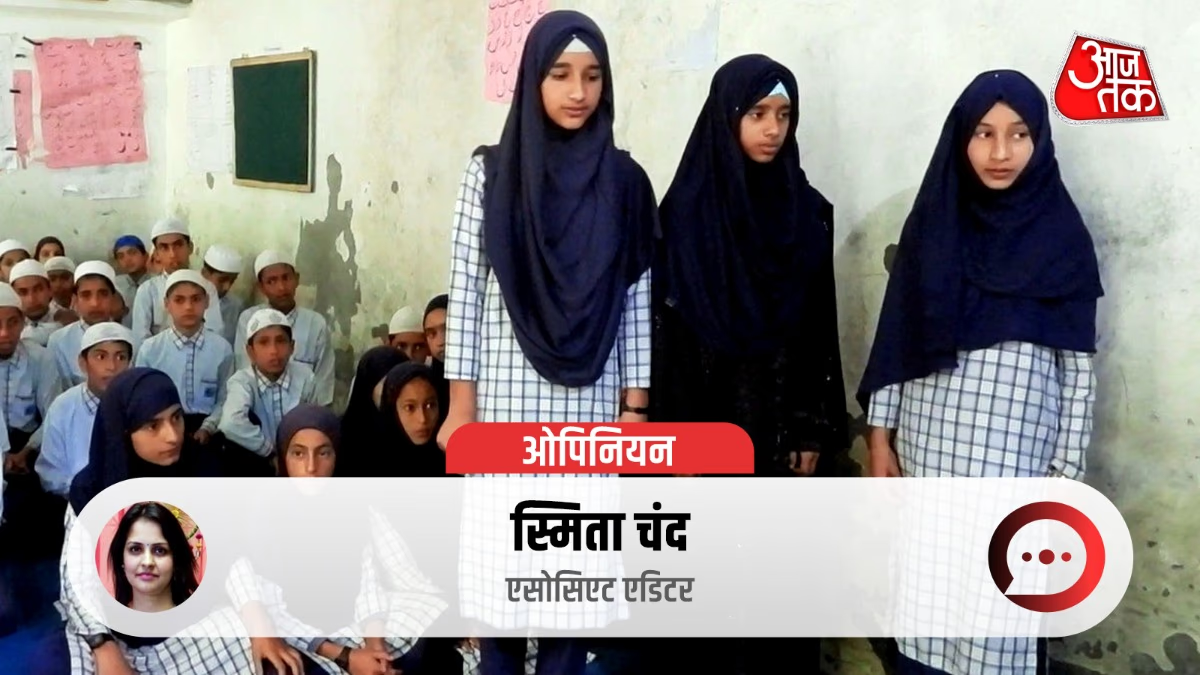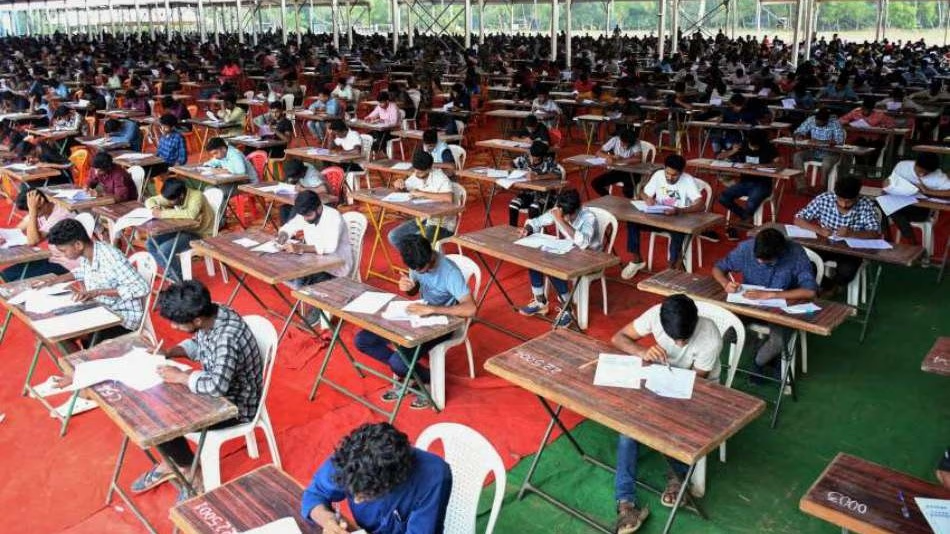It's been about two weeks since the Pahalgam attack, yet the entire region of Kashmir is still shrouded in fear and sorrow. Whenever tensions rise between India and Pakistan, the Poonch area near the Line of Control becomes tense. Known once as the hotbed of terrorism, the residents of Poonch are visibly angered by the recent terrorist attack. They are urging the government to respond decisively so that Pakistan thinks twice before resorting to such cowardly acts again. Several regions of Poonch lie just 500 meters from the border of PoK. Whenever there is firing from the Pakistani side, it becomes extremely challenging for the residents of this area. Over the past few days, provocative actions from Pakistan have been ongoing, and the Indian Army is responding with equal vigor.
Nestled amongst beautiful hills, Poonch is affectionately known as Mini Kashmir. The anger against Pakistan over the Pahalgam attack is clearly visible among its people. Arif Kazmi, a social activist from Poonch, still feels distressed by this attack. He says, 'The attack on Pahalgam was an attack on all of us, not just the 26 people affected. Our entire city mourned after the incident. Those people have tarnished the reputation of all Kashmiris. Here, everyone stands united with our armed forces to fight against terrorism.' Arif further shares, 'In Poonch, Hindus, Sikhs, and Muslims unite to combat terrorism. It's disheartening when some people write negative comments against us on social media. Please come here once, I will show you the entire city; people of all faiths live here in harmony and peace.'
The Village 500 Meters from PoK
Two years ago, I visited Poonch, and the warm welcome I received from unfamiliar faces still remains etched in my memory. Although I've traveled to many states across the country, nowhere else have I found the sense of belonging I felt from Kashmiri people. I met individuals who didn’t even know my name. My identity as a journalist from Delhi was enough; they didn’t ask my name or religion, they simply welcomed me with open hearts. I visited many villages in Poonch, and although the people were strangers, they greeted me as if we had known each other for years.
During my journey, I arrived at a village called Habibpur (a fictional name for security reasons), where the borders of India and Pakistan converge. On one side, the Indian Tricolor flies, and on the other, the Pakistani flag waves. From this vantage point, the border of the illegally occupied Kashmir by Pakistan is just 500 meters away. Some of the villagers have relatives there, but they can't visit; they can only communicate through gestures from their rooftops due to the proximity.
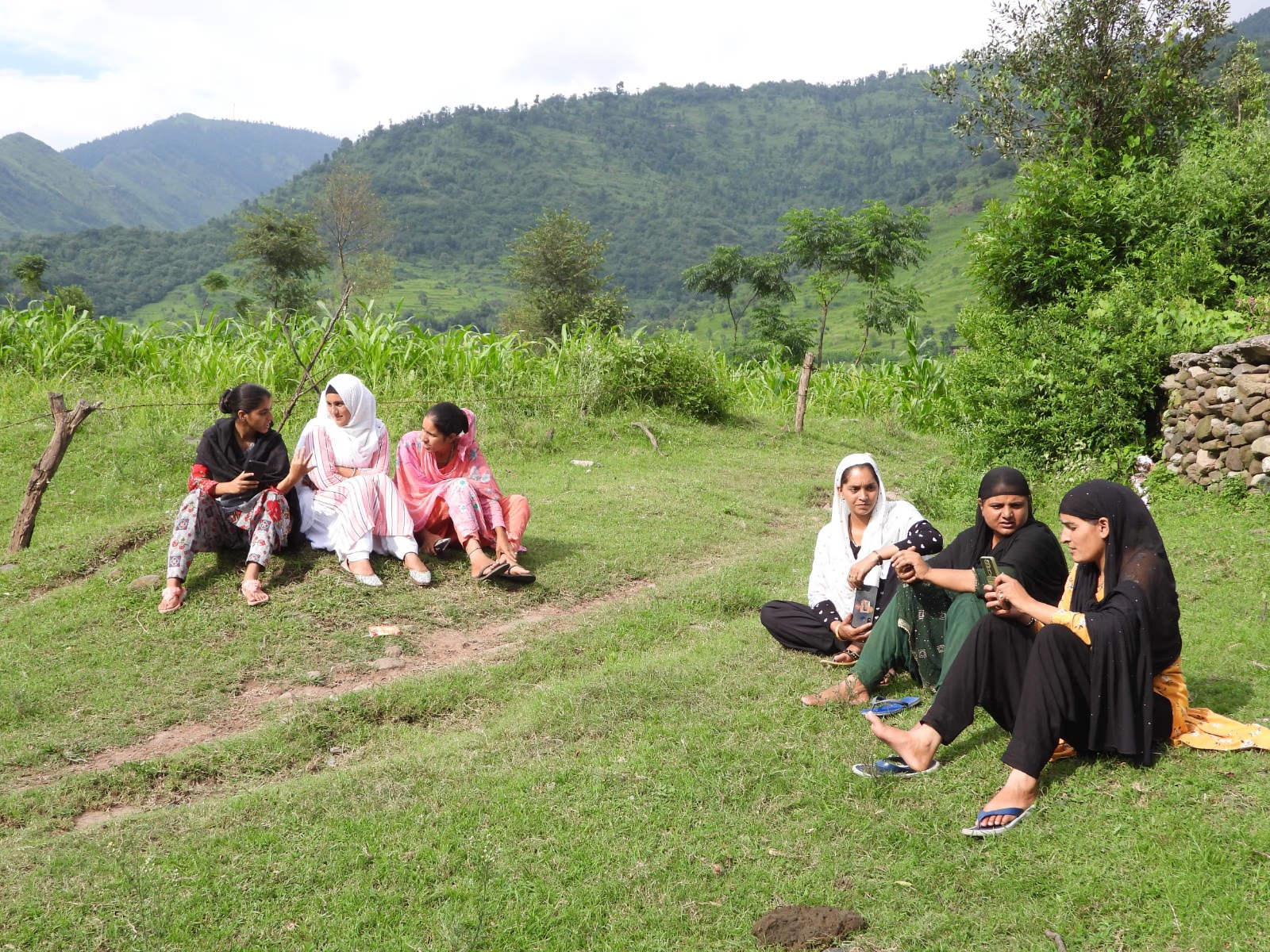
Source: aajtak
It's a small village with scarcely any employment opportunities, so most of the men work in Arab countries. The village largely consists of women and children. As I walked through the village, I observed women, children, and some elderly people all around. Located almost a thousand kilometers from Delhi, the confidence of the village's women astounded me. I had assumed that women in such remote areas would be less educated, but the head of the village is a woman. Filled with confidence, an empowered woman named Nazneen (name changed) was demanding a hospital and school for her village. She kept insisting that I relay her demands to the government, mentioning they live on Zero Point, where the future is uncertain each morning.
As I explored the village, about 20-25 women approached me, all carrying mobile phones, enthusiastically taking selfies. Their zest for life was evident. Each insisted on inviting me to their home, and I accepted, visiting as many as I could. Those modest homes were impeccably organized. Some offered me tea, while others shared sweets. Their hospitality made me feel like a family member. In light of recent reports of attacks on Kashmiris in other states following the Pahalgam incident, it pains me. Why resort to violence against people renowned worldwide for their hospitality? Most women in this village haven't ventured beyond its borders, yet they are well-informed about global events and stay updated on happenings across the nation.
Firing Used to Break Out Every Night
For years, the villagers endured life amidst gunfire. In the dead of night, sounds of bullets piercing the silence from the Pakistani side filled them with fear. However, due to the vigilance of the Indian Army over recent years, these villagers now lead a more carefree life. Despite the persistent threat from Pakistan, the villagers adapt to the erratic weather. Landslides often shut down roads, making hospital visits challenging during illnesses, yet they remain content in their small world. Following the Pahalgam terrorist attack, village leader Nazneen felt deeply upset. She lamented, 'What happened should never have occurred. It's a grave injustice to those 26 people.' Nazneen frequently expresses gratitude to the Indian Army, saying their presence allows her to feel safe living near the border with Pakistan.
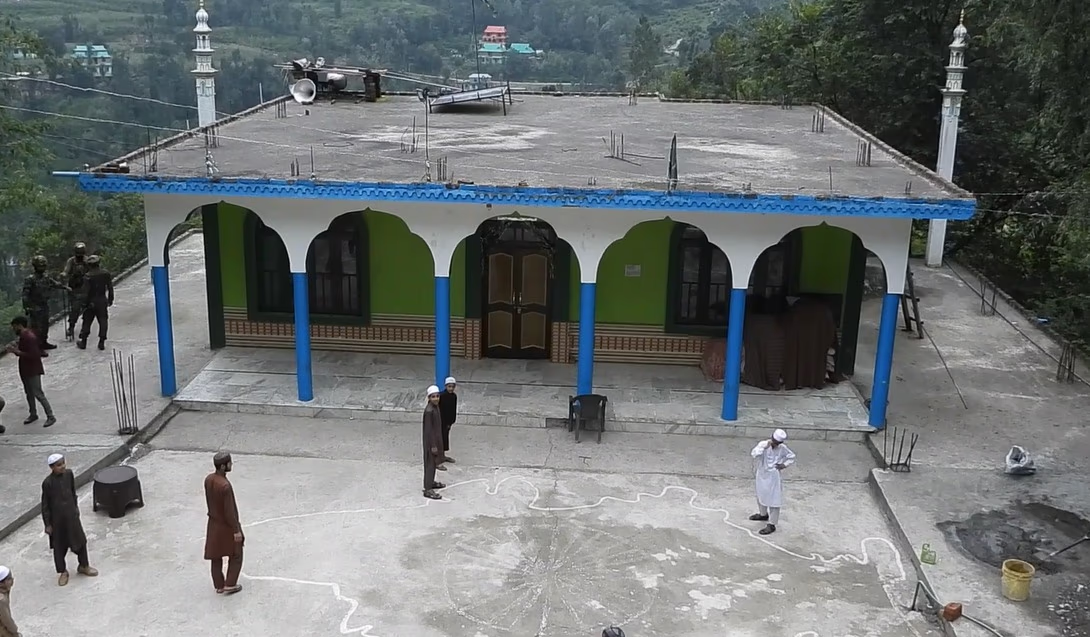
Source: aajtak
This is the story of that village. Now, let's delve into the tale of Hill Kaka in Poonch, a region once ruled by terror. I had the opportunity to visit a school in Hill Kaka. Nestled amidst dense forests at a high altitude, this school stands as a beacon of hope. In a place where life was once a struggle, children now pursue education freely. The faded walls of this remote school, far removed from the dazzling allure of urban life, filled me with nostalgia. Students sat on broken furniture and old, worn carpets, yet their talents were in no way diminished by the lack of amenities.
Three girls, aged 10 to 12, stood on a tattered blue carpet, singing a song infused with national pride, 'Yes, my land... my beloved, your love flows through my veins... let your colors never fade, as the blood flows through my veins... this is all I wish for...' Covered in scarves, their eyes gleamed with genuine patriotism, not an act; their voices truly emanated from their hearts.
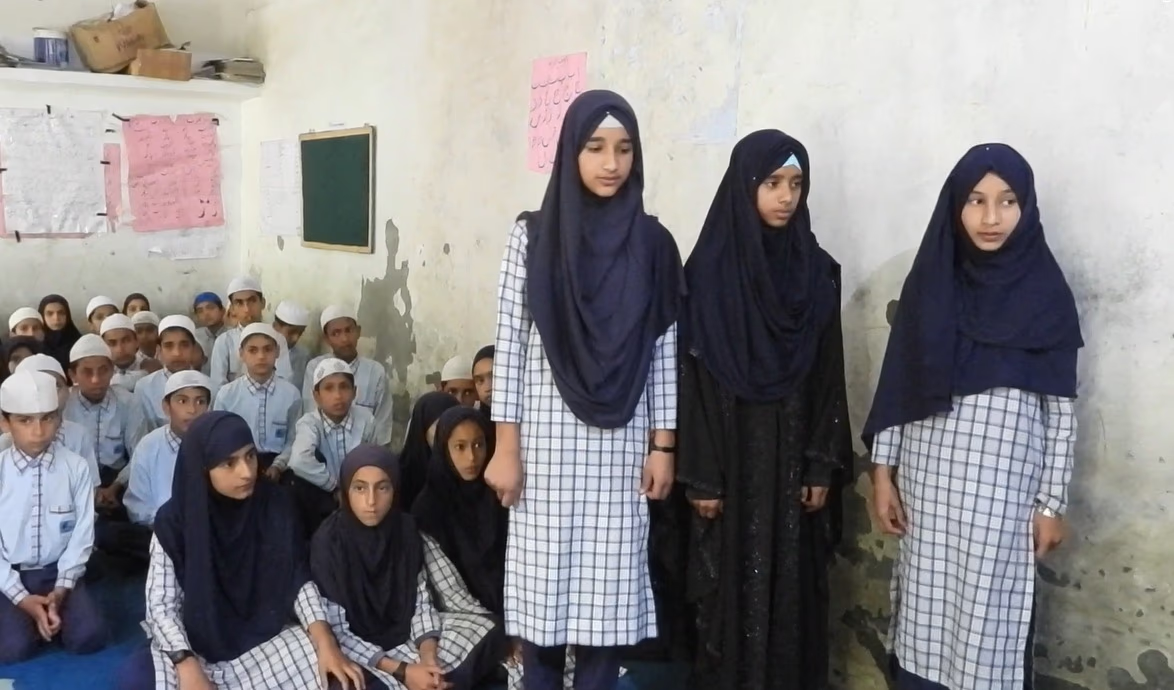
Source: aajtak
The school houses children aged between 8 and 14. They eagerly participated in singing and poetry, performing without hesitation. The school principal, Sheharas, hailing from Kerala, takes pride in offering education in Urdu, Arabic, and English. Among the students are those whose parents can't afford tuition. The school manager, Mohammad Qasim, shares Hill Kaka's history, describing how terror once prevailed here, overshadowing prospects of education and employment. Thanks to the army's efforts, conditions have stabilized over recent years, prompting local residents to rally together and fund this school's opening in 2014.
The building's ground floor houses an English medium school, while the second floor serves as a madrasa. Most children at the madrasa are orphans, finding solace within its walls—it's their sanctuary. The stark contrast between the two floors was evident: on one side, children danced to film songs, while on the other, madrasa students sat quietly, engrossed in their studies. Despite attempts at conversation, most replies were limited to simple yes or no. These children don’t recognize names like Shahrukh Khan or Salman Khan, nor have they heard of Virat Kohli, yet they excel in cricket. To showcase their skills, they enthusiastically picked up their bats and balls, heading out to play.
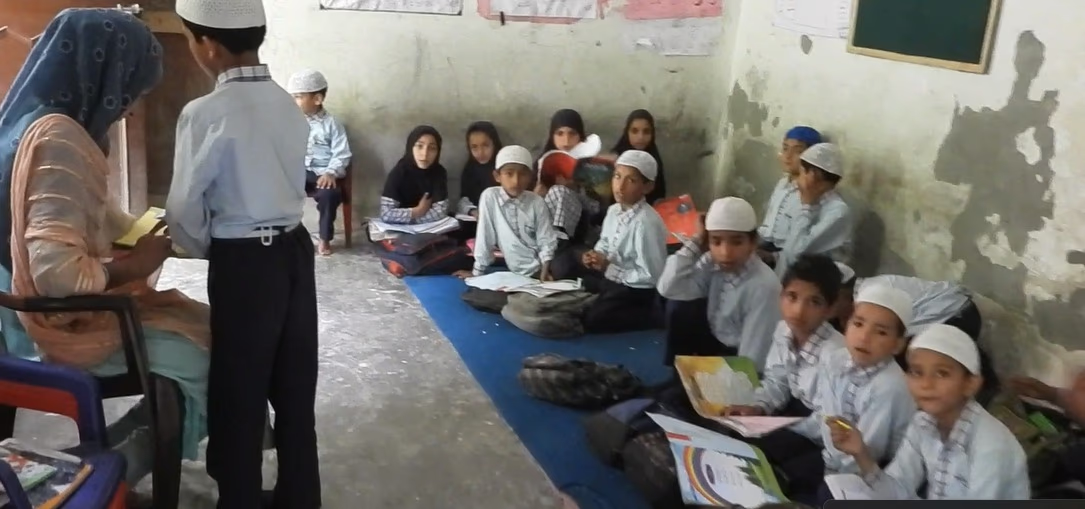
Source: aajtak
School manager Mohammad Qasim remains deeply affected by the Pahalgam attack, expressing his disbelief, 'I can't fathom how someone could commit such an act. We teach our children the importance of living in peace and harmony, but there are those who undermine the fabric of humanity.' The moments I spent in the streets of Poonch linger vividly in my mind. Selfies with village women, pictures of school children brimming with patriotism, remain with me always.
